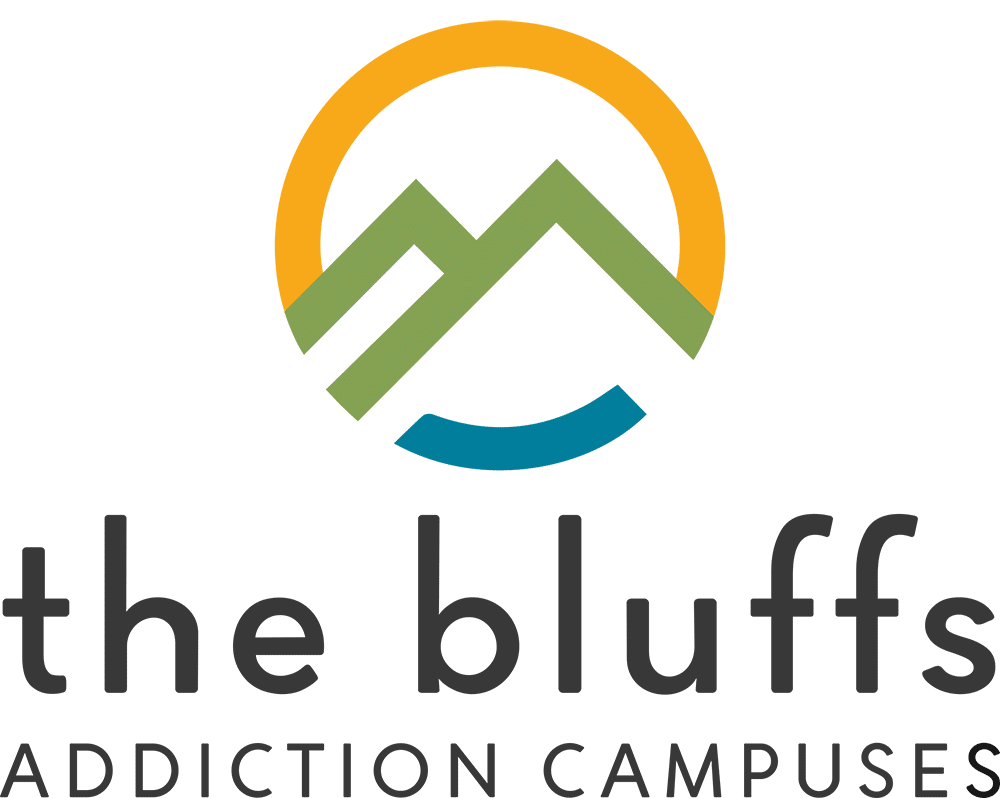Do you have a loved one who is addicted to drugs or alcohol? Inpatient treatment at The Bluffs can be a great opportunity for them to turn their life around. Our staff is committed to helping your loved one build a solid foundation for a drug-free life. There are numerous effective strategies you can implement within your lives to make this goal more attainable.
What Are The Signs And Symptoms Of Addiction?
Listed below are several examples of signs and symptoms a person might experience if they suffer from an addiction.
- Craving the substance?
- Showing signs of a tolerance?
- Using drugs or alcohol to avoid symptoms of withdrawal?
- Going to great lengths to find or use the substance?
- Neglecting activities they previously enjoyed?
- Losing sight of their relationships, job or education?
- Abusing substances to “feel better” or reduces stress?
- Continuing to use even though they know the damage it is causing?
- Acting secretive or lying?
- Unable to stop using even if they want to?
- Misusing their prescription or someone else’s?
- Exhibiting abnormal behaviors?
- Neglecting their self-care?
- Doing risky things while under the influence?
If you witness any of these seek help as soon as possible. Any combination of these and other signs could mean your loved one is struggling with addiction. [middle-callout]
What Strategies Are Available To Help A Loved One Get Treatment?
Overcome denial: Learning about addiction, treatment, and recovery can help you and your loved one to overcome this disabling mindset. Address any co-occurring disorders: Many people use substances as a means to cope with these mental health disorders which commonly accompany addiction. But if your loved one realizes that they can get help for these problems during rehab, they may be more open to discussing co-occurring disorder treatment.
- Research: Before you talk to your loved one:
- Read about the specific drug of use.
- Learn about different addiction treatment options.
- Find out about treatment
- Look at your finances and discover what your financial options are.
- Find out why relapse prevention plans are important.
- Look into aftercare support and programs.
Many addicted people feel overwhelmed by and out of touch from their life. Doing a little leg work for your loved can make treatment seem like a necessary and realistic goal.
- Create a plan: It’s important to mindfully create a solid treatment plan. If your loved one decides they want help, this can help them to more quickly get the care they need
- Stop enabling: When you enable your loved one, you are preventing them from experiencing the negative impact of their addiction. Though it might feel like you are making their life easier, in the long run these actions only make it harder.
- Create boundaries: Try to identify these situations and establish healthy boundaries with your loved one. While it may be hard to watch, experiencing these adverse effects firsthand will make your loved much more apt to accept their need for treatment.
- Don’t do it alone: The responsibility of getting your loved one into treatment shouldn’t rest on your shoulders alone. Reach out to other family members or friends to help.
- Contact a professional: It can be hard to process all this information. Let one of our treatment specialists help you. We can connect you to more resources, options and treatment plans which can make recovery more obtainable.
- Don’t wait for your loved one to ask for help: The more time that passes without help, the greater the risk to your loved one’s life, relationships, body, and brain. If you see a problem, reach out.
How Do I Help My Loved One Understand That They Have A Problem?
Keep Their Best Interests In Mind
While general information about addiction and treatment may be helpful, look at the whole picture and make it personal. This will help your loved one to better see how treatment can address the specific needs and struggles they face within their life.
Don’t Lecture Them
Listen and create a dialogue based on open-ended questions. Try not to project judgements or blame into the conversation. Sometimes the opportunity to talk it out can help a person to conclude on their own that they need treatment.
Avoid Criticism And Conflict
Be careful how you frame and communicate the negatives caused by their addiction. While it is important for your loved one to realize the dangers and impact of their addiction, you don’t want them to become overly defensive. If this happens they might shut down and not hear the important truths you have to share with to them.
Reassure Them
Even when you approach them with patience and an open-heart, your family member may still feel like they don’t deserve your love or support. Reinforce the positive aspects of their life and their person. Remind them of what they’re fighting to reclaim.
Start Slow
Too much too soon may make your loved one feel hopeless and overwhelmed. You want them to feel capable and positive, not buried under a mountain of mistakes or what seem to be unobtainable goals.
Pledge To Support Them
Treatment and recovery can be a long and at times frightening road. Explain how you’ll be standing by during treatment and recovery to keep them accountable, positive and focused on a drug-free life. Don’t make these promises lightly.
Should I Consider An Intervention?
For some people, no matter how evident the dangers and destruction of their addiction is, giving up drugs or alcohol doesn’t seem like an option. In these circumstances an intervention could be the extra help that you need to get your loved one into treatment. We strongly recommend seeking the services of a professional interventionist. An interventionist is highly-trained to effectively communicate to your loved one that change is necessary. A good interventionist will also help you to design a treatment plan and may even escort your loved one to treatment.
What Do I Do If My Loved One Refuses Help?
Unfortunately, in some cases, a person will refuse help no matter how hard you try. The most important thing to do is to continue to integrate and maintain many of the tips we’ve suggested above. Try to stay optimistic, maintain hope and don’t blame yourself. If you appear to give up your loved one may be inclined to do the same. If you’ve outlined certain boundaries or changes which go into effect should they refuse help, you need to stick to them. Faced with the consequences of their addictive behaviors, treatment and recovery may more quickly surface as a realistic and necessary choice to your loved one.
We Can Help You Create A Treatment Plan Today
At The Bluffs our compassionate staff is committed to instilling hope and the desire for a sober life in all of our clients. We firmly believe that every person who comes to us for help is unique. For this reason, we custom-fit each treatment plant to our client’s specific needs. Our staff is standing by to offer you more resources on addiction, specific drugs of use, detox, treatment for co-occurring disorders and so much more. Help your loved one get started on the path to sobriety, contact us today.







